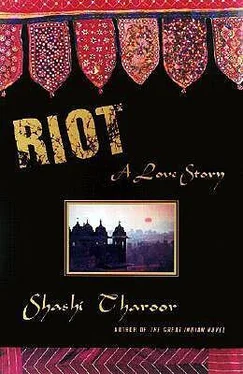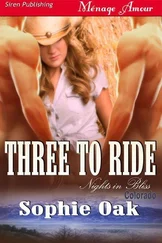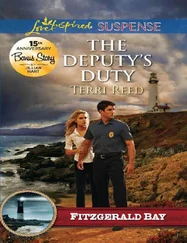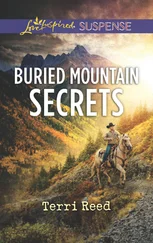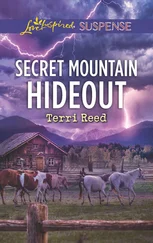RD: So you were able to keep things under control for a while.
GS: Yeah, for a while. But how the fuck do you control thirty thousand people on a hot September day if they’re determined to make trouble? The sun was getting higher, and so was the temper of the mob. By noon our shirts were soaked with sweat.
Here, have another drink. I could certainly use one.
RD: Thanks.
GS: It was tense, man. Tense. Want me to paint a picture for you? A seemingly endless procession, winding its way slowly, tortuously damned slowly, through the narrow lanes. Dust swirling upwards from their tramping feet. Chauvinist slogans rending the bloody air. Get it? Imagine the scene: The heat. The noise. The confusion. The hatred being spewed. The bloody adrenaline flowing. Those blasted blades flashing in the sun. People pumped up, thirsty, hoarse. Shouting.
RD: Then what happened?
GS: As it passed the main mosque, the procession paused, as if to attack. Lucky’s executive magistrates and my police had to physically push the frenzied young buggers onward. In case they forgot they were here to march and turned on the mosque instead.
RD: And the Muslims of the town? Where were they while this was going on in their neighborhood?
GS: At this point, they were all barricaded in their bloody homes. No Muslim was seen out of doors. Not even a circumcised mouse.
RD: Go on. What happened next?
GS: By midafternoon about two-thirds of the procession had passed by the Muslim bastis. Lucky and I began to believe we were going to get away with it. Without the explosion we’d both feared. We should have known we were as likely to escape untouched as a whore at a stag party. Ah! — some fresh soda at last.
Where were we? Yes, we were standing at the crossroads before one particular mosque. Not the main one. A smaller mosque, which had been the site of several communal battles in the past. The Mohammed Ali Mosque, I think it’s called. Doesn’t matter. In fact that was the mosque where we predicted the frenzy of the procession would reach its climax. That’s why we were both there. Bloody DM and twice-bloody SP. Pushing the crowd forward. Acutely alert for a clash. That’s the damnedest bloody thing, Mr. Diggs. We were there, prepared for the worst. We weren’t even taken by surprise.
RD: You can call me Randy.
GS: Only when I’ve seen you with a woman. But go on, have another. Soda’s okay now. You can’t let me drink alone.
RD: Thanks. Actually, it’s short for Randolph. But please go on.
GS: As I said, we were prepared. We had prevented an attack on the main mosque. We thought we were seeing this through. Then, suddenly, a bunch of young men came running, in absolute panic. Running from the opposite direction, that is, towards our part of the procession. They were shouting. At first we couldn’t hear what they were saying. I even thought they might be Muslims charging the marchers. But they were Hindu all right. And the agitation on their faces suggested something else. They were screaming, “They’re attacking us! Bomb maar rahen hain!” — they’re bombing us. Who? we asked, and of course the answer came, the Muslims. The Muslims had thrown a bomb into the crowd and a Hindu processionist had been killed. Shit — this was it, the moment we’d feared. Lucky and I ran immediately to the spot. It was barely a hundred meters away. The enraged crowd had gathered round a young man who was lying bleeding on the ground. His chest had been torn open by a crude bomb. His life was quickly ebbing away. People were screaming their fear and rage. The mood was uglier than a hijra’s crotch. Lucky quickly lifted the youth into his car, which was waiting nearby, and told the driver to rush him to hospital. He died before he got there.
RD: The first victim.
GS: You’re bloody right. The first victim. Lucky and I had a job to do. We were confronting an infuriated mob screaming for bleeding vengeance. We knew that if we didn’t act immediately, we’d have a lynch mob on our hands. They’d be running wild through the Muslim bastis. We had to deal with the provocation before it got out of control.
RD: Sounds like it already had.
GS: Look, it was one death so far. We were fearing hundreds. It was pretty clear to me, after a couple of questions, where the bomb had been hurled from. There was a small double-storied house in a very narrow by-lane. This lane branched off, as crooked as a beaten mongrel’s leg, from the main lane of the Muslim quarter through which the procession was passing. The idiots who’d thrown it had clearly made a stupid little calculation in those twisted little minds they keep up their ass somewhere. They figured the first bomb would bring the procession to a halt. Then the enraged mob would rush the house. Once the crowd was near the house, these stupid buggers would throw their little collection of homemade bombs from above. Kill a lot of the marchers — that was their only thought. If “thought” isn’t too strong a word for their stinking little scheme. And they’d have accounted for a few Hindu fanatics, I have to grant them that.
RD: But they’d have been killed too. Their house could have been burned down.
GS: You’re right. Though it wasn’t their own house. But don’t look for rational thinking in communal riots, Randy. These buggers had been at the receiving end of insults and slogans and petty offenses of all sorts for days leading up to the Ram Sila Poojan. They were maddened like a chained animal that’s been regularly prodded. Of course the poor bastards felt it was time to retaliate.
RD: But the Muslims had already taken action, right? With the motorcycle assault? Was there any connection?
GS: Different buggers. But it was the same sort of attitude that prompted the Muslims on the motorcycles the previous night to stab those Hindu boys. You don’t think as far as the next step. You just want to do something, now.
RD: Was the crowd already at the house when you got there?
GS: No, Lucky and I had run to the spot as soon as we heard of the incident. People were still in shock, focusing on the wounded boy. Once we got him off in the DM’s car, though, we knew the crowd would become a mob. And mobs want only one thing. Revenge.
from Lakshman’s journal
June 2, 1989
We speak, inevitably, about writing. I picked up her scrapbook once without asking her, and she snatched it away with a little scream. These Americans and their exaggerated sense of privacy! I paraphrased Wilde: “Everyone should keep a diary — preferably somebody else’s.” She wouldn’t budge. So I needled her enough to get her to show me some things in it. Not the very personal stuff — about me, perhaps? — but her creative musings, poems, sketches. She’s not a bad poet. There’s one on Zalilgarh, written last Christmas, that’s probably good enough to be published. I tell her so, and she blushes. She doesn’t write for publication, she tells me, only for herself. Everything in her scrapbook is for herself, and no one else.
“What’s the point, then?” I demand. “Ever since college I’ve been struggling to find the time to write because I have something to say to the world, and here you have the time to write and you want no one to read it.”
That gets us onto my own writing — my erratic, disorganized, unfocused writing, my whenever-I-can-fmd-the-time-and-the-mood writing, my escaping-from-Geetha writing. I am defensive, almost embarrassed, about my poetry; I do not mention my journal. But I think aloud about fiction.
Читать дальше
